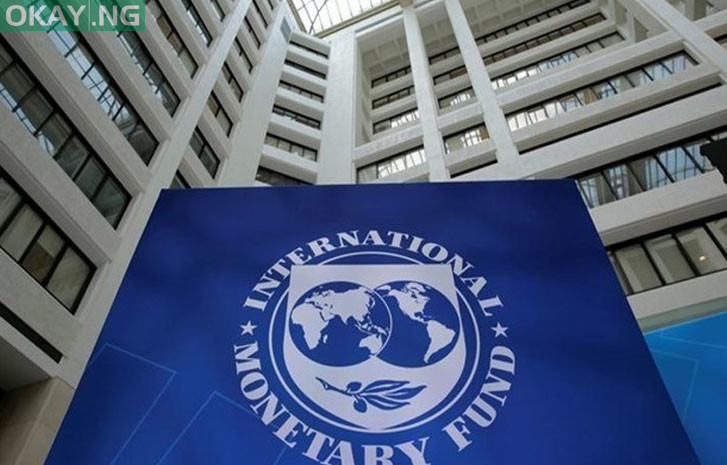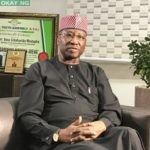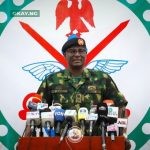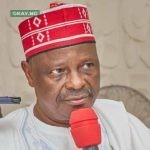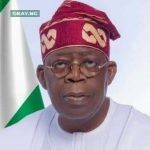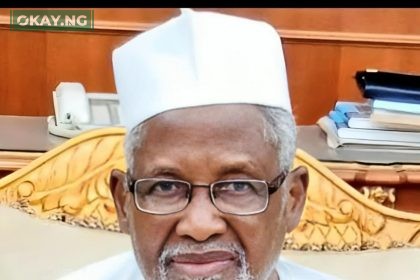The International Monetary Fund (IMF) has announced a downward review of its 2020 growth forecast for Nigeria to 2 percent from the 2.5 percent it predicted earlier.
The Washington-based institution stated this in its Article IV Consultation on Nigeria, posted on its website Monday.
Led by the Senior Resident Representative and Mission Chief for Nigeria, Amine Mati, officials of the global financial institution visited Lagos and Abuja between January 29 and February 12, for discussions on Nigeria’s economy.
In its latest report, the IMF noted that Nigeria’s pace of economic recovery remains slow, as declining real incomes and weak investment continue to weigh on economic activity.
Inflation, which it said is driven by higher food prices, has risen, marking the end of the disinflationary trend seen in 2019. The IMF said external vulnerabilities are increasing, reflecting a higher current account deficit and declining reserves that remain highly vulnerable to capital flow reversals even though the exchange rate has remained stable, helped by steady sales of foreign exchange in various windows.
“High fiscal deficits are complicating monetary policy,” the report said.
“Weak non-oil revenue mobilisation led to further deterioration of the fiscal deficit, which was mostly financed by Central Bank of Nigeria (CBN) overdrafts. The interest payments to revenue ratio remain high at about 60 per cent.”
Earlier in January, the IMF projected that Nigeria’s real Gross Domestic Product will grow by 2.5 per cent in 2020 and 2021. The projection was contained in its January World Economic Outlook (WEO) titled, “Tentative Stabilization, Sluggish Recovery.
In its Regional Economic Outlook in October, the IMF had projected that Nigeria will grow by 2.3 per cent in 2019 and 2.5 per cent in 2020. It said the growth in the Nigerian economy is expected to pick up to 2.3 per cent in 2019, based on a continuing recovery in the oil sector and the regaining of momentum in agriculture, following a good harvest.
The fund noted, as part of its downside risks, that global oil supply could be disrupted due to the rising geopolitical tensions, notably between the United States and Iran.
But in its latest report, IMF disclosed that under the current policies, the outlook is challenging.
“The mission’s growth forecast for 2020 was revised down to 2 per cent to reflect the impact of lower international oil prices,” the IMF said. “Inflation is expected to pick up, while deteriorating terms of trade and capital outflows will weaken the country’s external position.
The IMF noted that recognising these vulnerabilities, the authorities have taken a number of welcome steps, including measures to boost revenue through the adoption of the Finance Bill, Deep Offshore Basin Act, and improved budget execution by adopting the 2020 budget by end-December 2019.
“The tightening of monetary policy in January 2020 through higher cash reserve requirements to respond to looming inflationary pressures is welcome,” it said. “Progress on structural reforms—particularly in Doing Business, finalising power sector reforms, and strengthening governance—is commendable. Major policy adjustments remain necessary to contain short-term vulnerabilities, build resilience and unlock growth potential.
“Non-oil revenue mobilization—including through tax policy and administration improvements—remains urgent to ensure financing constraints are contained and the interest payments to revenue ratio sustainable. Recourse to central bank overdrafts should be limited and the mission supports the authorities’ plans to use the low domestic yield environment to front-load their financing requirements.
“Further tightening of monetary policy—albeit through more conventional methods—is needed to contain domestic and external pressures arising from large amounts of maturing CBN bills. The mission reiterated its advice on ending direct central bank interventions, securitizing overdrafts to introduce longer-term government instruments to mop up excess liquidity and moving towards a uniform and more flexible exchange rate. Removing restrictions on access to foreign exchange for the 42 categories of imported goods would be needed to encourage long-term investment.”
Furthermore, the IMF noted that banking system vulnerabilities should continue to be addressed as the mission welcomed recent efforts to reduce legacy non-performing loans. The introduction of risk-based minimum capital requirements would also help strengthen bank resilience, it said, adding that notwithstanding the significant increase in lending, concerns about shortened maturity, asset quality and conflicting monetary policy signals call for revisiting the minimum lending to deposit ratio directive.
“Structural reforms—particularly executing the much-delayed power sector recovery plan, implementing the anti-corruption and financial inclusion strategy, and addressing infrastructure and gender gaps—remain essential to boosting inclusive growth,” the IMF noted.
The Washington-based institution noted that Nigeria’s continued closure of its border has had an effect on the local economy as well as the economy of its neighbouring countries. It, however, called on the parties involved to negotiate terms on how well to foster regional co-operation and put a stop to illicit importation of goods.
“Nigeria’s border closure will continue to have significant economic consequences on the country’s neighbours,” the IMF said. “It is important that all involved parties quickly resolve the issues keeping the borders closed—including to stop the smuggling of banned products.”
Earlier on Tuesday, the National Bureau of Statistics (NBS) said the Consumer Price Index (CPI) which measures inflation increased by 12.13 per cent year-on-year in January 2020.
The increase, the NBS said, was 0.15 per cent points higher than the rate recorded in December 2019, which was 11.98 per cent.


